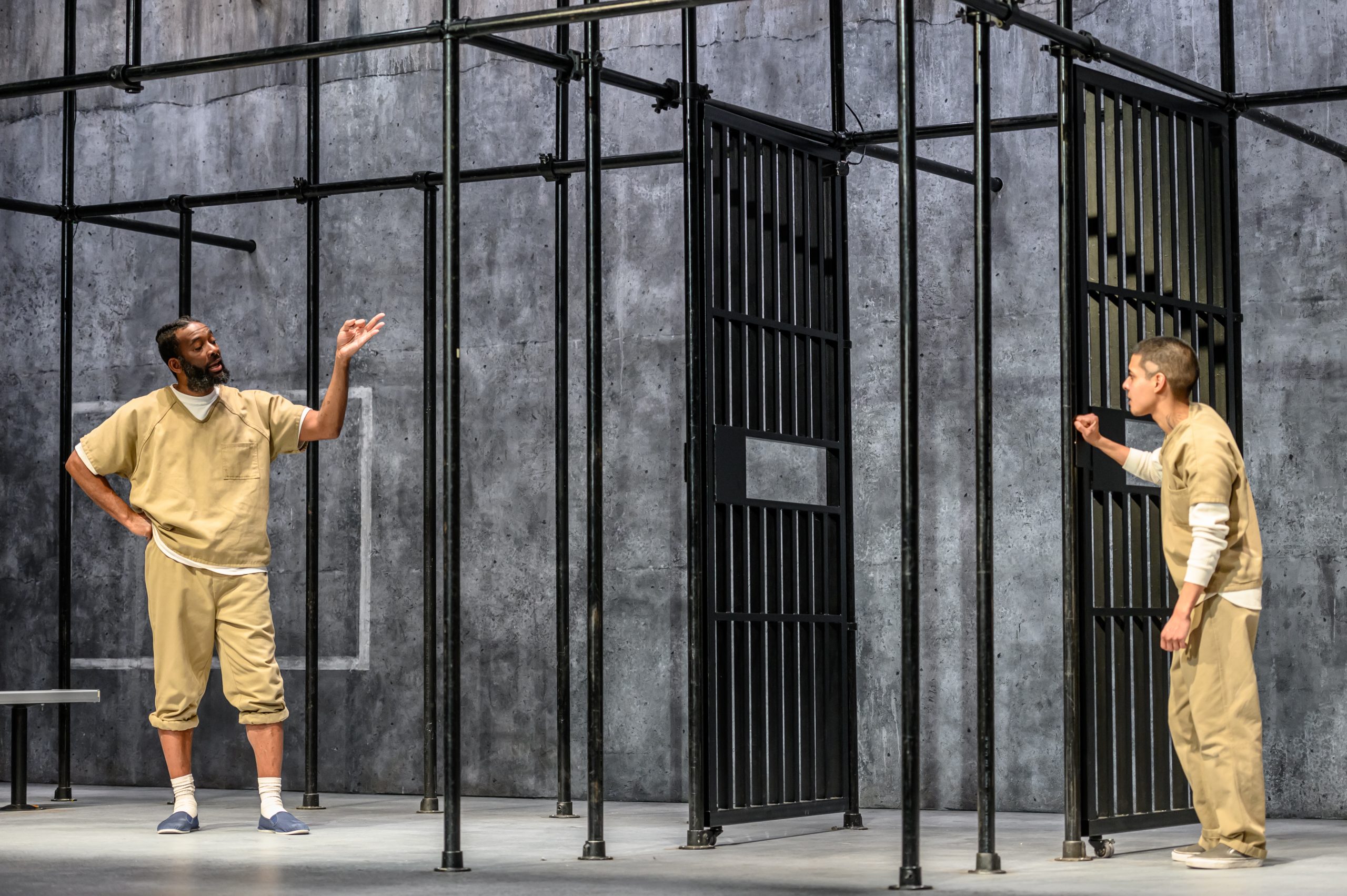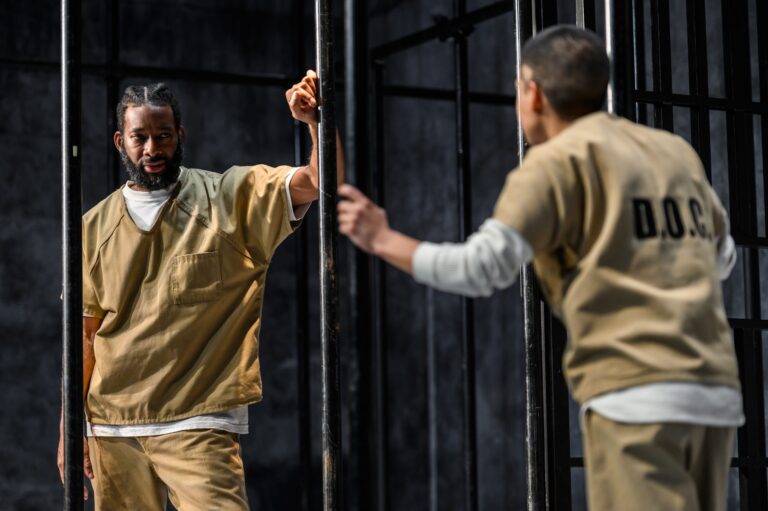REVIEW: Jesus Hopped the ‘A’ Train
Intermission is thrilled to be hosting the inaugural theatre reviews of the Emerging Arts Critics Programme 2019/20 season. Intermission is partnering with Soulpepper Theatre Company and theatre critic Robert Cushman to mentor this season’s participants.
One of the most striking things about Soulpepper’s Jesus Hopped The ‘A’ Train is how multi-dimensional its main characters are. Sure, it tells a story of addiction and cyclical abuse — a narrative we’ve grown to expect about those who go behind bars. But the audience also hears stories of childhood friendships and complicated relationships with sunlight, underpinned by an abundance of religious themes that the Sistine Chapel could envy. This play puts human faces to the domino effect that is triggered when someone is arrested.
Artistic Director Weyni Mengesha does justice (pun intended) to Pulitzer-prize winning playwright Stephen Adly Guirgis’ play, which first premiered off-Broadway in 2000. If you aren’t certain about this play’s religious themes, the two main characters are Lucius Jenkins (Daren A. Herbert) and Angel Cruz (Xavier Lopez). Plus, well, there’s the title of the play itself.
The audience is submerged in the milieu of a prison at the onset of the show, surrounded by darkness and clanging bars for one long moment, thanks to great work by lighting designer Kevin Lamotte and sound designer John Gzowksi. Being unable to make eye contact with your seat partners is disorienting but is only a fraction of the isolation our characters experience for 23 hours of the day. Given only one hour of fresh air, maximum security prisoners Jenkins (whose nickname is the Black Plague which may allude to factors of system racism) and Cruz spend their precious hour per day talking about God and repentance, saviours and free will, as well as their past crimes. Cruz is in for allegedly shooting a cult leader reverend in the ass. The dialogue between the two stars drives the play; they filled the stage with their presence, despite a barebones set of unforgiving prison bars and concrete walls.
Lopez commands the space with his diminutive stature as if he was seven feet tall, and Herbert’s volatile range of emotions feels like a ticking bomb. Herbert wears Lucius’ skin with a confidence that is infectious, both in his sunny moods and his stormy ones (Lucius’ history of mental illness, which we discover toward the end of the play, calls into question everything we’ve learned about him). That Herbert’s impeccable deliveries are met with laughter and cheers from the audience is because ‘A’ Train breathes light and comedy into some of the most shameful aspects of North American society; it would be grossly missing the point to preclude Canada’s jails from the criticism of the U.S. system that this production so gracefully shoves in the audience’s face.

Daren A. Herbert and Xavier Lopez in Jesus Hopped the ‘A’ Train. Photo by Dahlia Katz.
The use of sunbeam-like spotlights streaming—or failing to do so— through the bars at various points in the show enhances the symbolism of light as redemption. Jenkins captivates the audience by telling the tale of his past in a dark apartment in Miami, days spent looking for drugs and avoiding the sunlight. In prison, he’s found Jesus and encourages Cruz to enjoy his hour in the sun no matter what.
The production’s casting is superb. Diana Donnelly is confident in her complex role as Mary-Jane Hanrahan, Angel’s overworked attorney outrunning her own demons. Her character moves the plot forward with monologues about the progress, or lack thereof, in Cruz’s case. While prison guard D’Amico (Gregory Prest) is a more sympathetic character, Tony Nappo makes you hate him in the role of Valdez; a job well done. Valdez, while treating his charges with excessive cruelty, discloses his belief that this is the only way to bring “justice” to victims’ families. Even still, the words “You are livestock in storage,” ring out through the theatre and hang suspended in the thick air. All three supporting characters speak directly to the audience, while Cruz and Jenkins never do—symbolic of their isolation from society and their inability to speak freely.
Jesus Hopped The ‘A’ Train walks the tightrope between entertainment and advocacy delicately. It is a show for the engaged citizen, as well as a piece of poetry for those with a lean toward the philosophical. It’s not hard to answer the questions, “Why this show? Why now?”
This story lies between the black and the white, in the fact that purely good and bad people are a myth. The grey area is where we untangle the complexities and idiosyncrasies of human behavior and psychology that should be inextricable from the concept of “legal justice.” In a political environment increasingly marked by finger-pointing and partisan thinking, perhaps it is in the grey area where real justice can be found.
Jesus Hopped the ‘A’ Train runs through February 23 at the Young Centre for the Performing Arts, 50 Tank House Lane. For information and tickets click here.








Comments